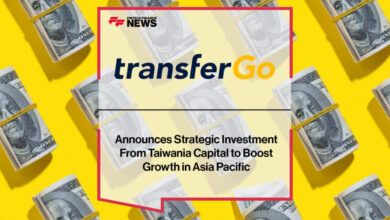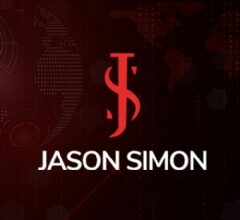It’s all about trust – Chris Skinner’s blog

Building upon my blog about Revolut the other day, and their need for a banking license, I’ve been accused many times of coming back to a theme that you can only be a bank if you’re a bank with a license. Why do I keep coming back to this theme? It’s all about trust and governance.
Commenting on my recent blog about such theme Richard Baker, someone who has founded a bank, asked me:
This ‘next big thing’ in FS morphed into your oft trodden theme of trust, almost regardless of potential innovations. Maybe it’s time, though, to challenge your assumption at the heart of why there will always be a need for banks with banking licences (having achieved three I’m personally questioning the whole model now) … You’re spot on to say whenever money is trusted with institutions that “if it’s not backed by anything, it’s worth nothing”. But what if, in some crazy universe where government debt spirals out of control, that the government backed deposit insurance becomes of no value as a guarantee because governments are insolvent themselves?
There are many questions raised by this comment, but the three that are top of mind are:
- Who do you trust?
- Why do you trust them?
- What is the institution that backs this trust?
Yes, as usual, it’s all about trust. In fact, everything in finance is all about trust. By way of example, I no longer insure some of my valuable investments because I know that the insurer will ask me for receipts and proof if I make a claim, and I no longer have such proofs as I bought these items years ago. I no longer trust my bank because they challenged me about my transactions, so I debanked them.
Trust works two-ways. The insurer and the bank want to trust me – it’s a critical term in insurance called fides (that’s Latin folks) – whilst the customer wants to believe that the insurer will pay their claims when they arise and that the bank won’t lost their money.
So, let’s go back to these fundamentals, the question Richard raised and the three things in response:
- Who do you trust?
- Why do you trust them?
- What is the institution that backs this trust?
Let’s start with who do you trust.
My claim is that I trust an institution that guarantees my money is safe. The only institution I’m aware of that has that guarantee is a company with license issued by a trusted authority to do that. Today, my theme is that this has to be a bank authority with an insurance scheme supported by a government.
The issue here is the word government. Everyone always assumes that I mean a national government such as the Federal Reserve, Bank of England or European Central Bank. I DO NOT. I mean a government that I trust. This could be the national government or, just as easily, the network of the people.
Going back to Richard’s point, I have seen many governments fail – Venezuela, Zimbabwe and more – and people naturally move away from trading in national currencies to trading in cryptocurrencies. Why else would Nigeria be one of the largest cryptos nation in the world?
In other words, if I don’t trust my government, I trust someone else. It’s all about trust.
If you don’t trust your government, who do you trust is a critical question and, for some, they trust the network of the people. But then FTX and Binance and others get into trouble and you wonder why trusted them. It’s a balance, which leads to the second question: why do you trust them?
For most individuals, you trust institutions, friends and family based upon acclimatisation. You have days, weeks, months, years of dealing with them. But that trust can easily be broken.
My friend didn’t pay back the £1,000 I lent them (they did); my brother is ripping me off (he is); ); I lost £100,000 investing in a company that had an office in my town (I did) … the list goes on. So, why did I let them get away with it? Why did I trust them?
In all cases above, it’s because they were people and companies I thought I could trust. The best example is the loss in the company who had celebrity endorsements, an office in my town, fantastic people who ensured me everything was safe and, over six months, an assurance all was good. It wasn’t. I lost a fortune.
This is why I trust banks and, to be clear, it’s not trust in bank’s brands or bank’s people. It’s trust in the multi-layered back-up of the fact that the bank has a license backed by the government of the people.
That leads to the third question: what is the institution that backs this trust?
EVERYBODY, literally everyone, assumes that I always mean the national government. The Federal Reserve, the People’s Bank of China or whatever, and I categorically do not mean the central bank or the national government.
This is the issue everyone gets so wrong when they read my updates, so let’s clear it up. When I say the government of the currency, and the institution that backs this trust, it is the institution, government and governance that works for you. It the institution you trust.
That will usually be a government of the people, but it can just as easily be the government of the network as the government of the country.
This is where most get it wrong, including politicians, as the network has taken over. In fact, it is the biggest fear of traditional governments that they have been replaced by digital governance.
So, going back to Richard’s challenge, I assume nothing. If national governments fail and digital governance works better, go with the flow. It’s just that we are in this juncture where the two are in massively fluid friction and, if you want to know more, you need to buy my new book Intelligent Money: Where Money Thinks For You:
For over ten years, libertarians have said that bitcoin will be the currency of Planet Earth. Chris Skinner has always argued that you cannot have money without government. Who is right?
For over ten years, libertarians have accused people like Chris of being a Statist – someone who support national government states in implementing law – and saying he is wrong. What they didn’t ask is: who is the government? Is the government the State or the network?
This issue has been at the heart of a debate for over ten years, and may finally be coming to some resolution thanks to the collapse of FTX, Celsius, ThreeArrows, Terra-Luna and many other cryptocurrency market trading platforms in the last years.
The core of this argument is what is the future of money. Is it decentralised or centralised. Is it DeFi – decentralised finance – or CeFi – centralised finance? This book argues that it’s HyFi or, in other words, hybrid finance. The future of money requires regulatory oversight but can operate in a decentralised form. Why? Because if you lose all of your money to a decentralised exchange, platform or currency, there needs to be a way to get it back.
#nuffsaid



